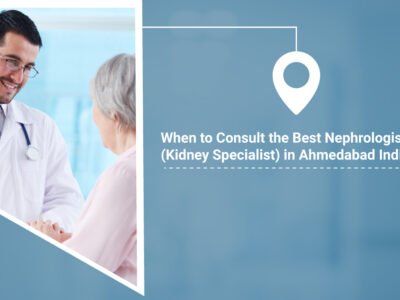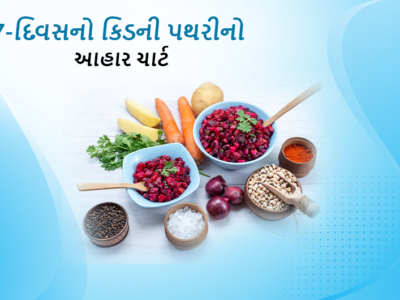Pregnancy is one of the most special journeys in a woman’s life, but it comes with unique health challenges that require attention. One such condition is gestational kidney disease, which affects both the mother’s health and the baby’s growth. Unlike chronic kidney disease, which exists before pregnancy, gestational kidney disease develops during pregnancy and can lead to serious complications if not managed properly.
Knowing the risks, early signs, and management tips is important for every expecting mother and her family. In this blog, Dr. Ravi Bhadania explains what gestational kidney disease is, the risks it poses, and practical ways to manage it for a safer pregnancy. If you or someone you know is expecting, this guide will help maintain kidney health and support the best outcomes for both mother and baby.
What is Gestational Kidney Disease?
Gestational kidney disease is a type of kidney problem that develops during pregnancy. It is different from chronic kidney disease, which exists before conception. In this condition, the kidneys may show signs of reduced function or damage due to the extra stress pregnancy puts on the body.
During pregnancy, kidneys work harder than usual. They filter more blood, manage extra fluid, and maintain electrolyte balance for both mother and baby. This extra workload can sometimes cause temporary kidney issues or worsen undetected kidney problems.
Some common causes of gestational kidney disease include:
- High blood pressure during pregnancy
- Preeclampsia, a serious complication involving high blood pressure and organ problems
- Urinary tract infections, which are more common in pregnancy
- Gestational diabetes, which can affect kidney health
Understanding this condition is very important because early kidney problems may not show obvious symptoms. Detecting gestational kidney disease early can help ensure better health for both mother and baby.
Risks of Gestational Kidney Disease During Pregnancy
Pregnancy naturally puts extra stress on the kidneys. When gestational kidney disease develops, it can increase health risks for both the mother and the baby.
Risks for the Mother
- High Blood Pressure and Preeclampsia: Women with kidney problems are more likely to develop high blood pressure, which can lead to preeclampsia. This condition may cause severe headaches, swelling, and damage to organs.
- Reduced Kidney Function: If not treated, gestational kidney disease can lower kidney function and may sometimes lead to acute kidney injury.
- Protein in Urine (Proteinuria): Excess protein in urine is common and can increase the risk of kidney damage.
- Future Kidney Problems: Women who experience kidney disease during pregnancy may have a higher chance of developing chronic kidney disease later in life.
Risks for the Baby
- Preterm Birth: Kidney problems in the mother can lead to early delivery.
- Low Birth Weight: Reduced kidney function may affect the baby’s growth, resulting in underweight newborns.
- Stillbirth: In severe cases, gestational kidney disease may increase the risk of stillbirth.
- Respiratory or Developmental Issues: Babies may face underdeveloped lungs or growth delays.
Studies show that pregnant women with kidney issues have up to three times higher risk of preeclampsia and a higher chance of giving birth to low-weight babies compared to women without kidney problems. Early detection and proper medical care are essential for the health of both mother and child.
Symptoms and Warning Signs of Gestational Kidney Disease
Gestational kidney disease can be hard to notice because some symptoms may seem like normal pregnancy changes. However, recognizing the early warning signs is important:
- Swelling in hands, feet, or face that persists
- Feeling unusually tired beyond typical pregnancy fatigue
- Changes in urination, such as less frequent urination, pain, or foamy urine
- High blood pressure detected during routine check-ups
- Severe or prolonged nausea and vomiting
If you notice any of these symptoms, it is important to see a doctor right away. Early detection can prevent complications and protect both mother and baby.
Diagnosis and Screening of Gestational Kidney Disease
Early diagnosis is very important for managing kidney problems during pregnancy. Doctors use different tests to detect gestational kidney disease:
- Urine Tests: To check for protein, infections, or abnormal waste levels
- Blood Tests: To assess kidney function by measuring creatinine and urea levels
- Blood Pressure Monitoring: High blood pressure may signal kidney stress
- Ultrasound: To examine the structure and function of the kidneys
Regular prenatal check-ups are essential to catch kidney problems early. With timely screening and proper care, complications can be prevented, keeping both mother and baby healthy.
Management and Treatment of Gestational Kidney Disease
Managing gestational kidney disease during pregnancy requires a mix of lifestyle care, medical treatment, and close monitoring. Treatment is personalized based on the severity of the condition and the stage of pregnancy.
1. Lifestyle Care
- Healthy Diet: Eat a balanced diet low in salt to control blood pressure and reduce kidney stress. Include fresh fruits, vegetables, whole grains, and lean proteins.
- Hydration: Drink enough water to support kidney function, but follow your doctor’s advice if swelling or kidney issues are present.
- Adequate Rest: Proper rest reduces stress on the kidneys.
- Control Weight Gain: Avoid excessive weight gain to prevent gestational diabetes and reduce kidney strain.
2. Medical Treatments
- Safe Medications: Take only prescribed medicines. Doctors may prescribe pregnancy-safe blood pressure drugs or antibiotics for UTIs.
- Monitor Protein in Urine: Regular urine tests help track protein levels and kidney function.
- Blood Pressure Management: Lifestyle changes and medications help keep hypertension under control.
3. Regular Prenatal Care
Frequent visits to both a gynaecologist and a nephrologist ensure the condition is monitored. Regular checks of blood pressure, urine protein, and kidney function help prevent complications.
4. Emergency Care
In severe cases, hospitalization may be necessary to stabilize blood pressure, protect kidney function, and ensure the baby’s safety until delivery.
With proper care and monitoring, many women with gestational kidney disease have safe pregnancies and deliver healthy babies.
Prevention and Self-Care Tips for Gestational Kidney Disease
While not all cases of gestational kidney disease can be prevented, certain habits can lower the risk and support kidney health during pregnancy:
- Follow a Kidney-Friendly Diet: Limit salt, processed foods, and excess sugar. Include fresh fruits, green leafy vegetables, and enough protein.
- Manage Stress: Practice meditation, deep breathing, or light yoga to reduce stress, which helps kidney health.
- Avoid Self-Medication: Do not take over-the-counter painkillers or herbal remedies without a doctor’s advice, as they may harm the kidneys.
- Maintain Healthy Weight: Keeping weight under control reduces the risk of gestational diabetes and high blood pressure.
- Stay Physically Active: Engage in doctor-approved light exercises to support overall health and well-being.
Following these simple self-care tips can help protect kidney health and promote a safer pregnancy.
When to Seek Medical Help for Gestational Kidney Disease
It is important to see a doctor immediately if you notice any of the following:
- Severe swelling in the face, hands, or feet
- Sudden increase in blood pressure
- Reduced or no urine output
- Severe abdominal pain, headache, or vision problems
- Decreased fetal movements
In such cases, consulting a nephrologist like Dr. Ravi Bhadania along with your gynaecologist ensures specialised care. Both doctors work together to manage the condition while keeping you and your baby safe.
Conclusion
Gestational kidney disease is a serious condition, but it can be managed effectively. With early detection, proper medical care, and healthy lifestyle choices, many women have safe pregnancies and deliver healthy babies. The key is to watch for warning signs and attend regular prenatal check-ups.
As Dr. Ravi Bhadania emphasizes, pregnancy and kidney health are closely linked. Consulting a kidney specialist in Ahmedabad if you notice unusual symptoms or have risk factors ensures proper care and timely treatment. With the right guidance, you can enjoy a safe pregnancy while protecting your kidney health and your baby’s well-being.


